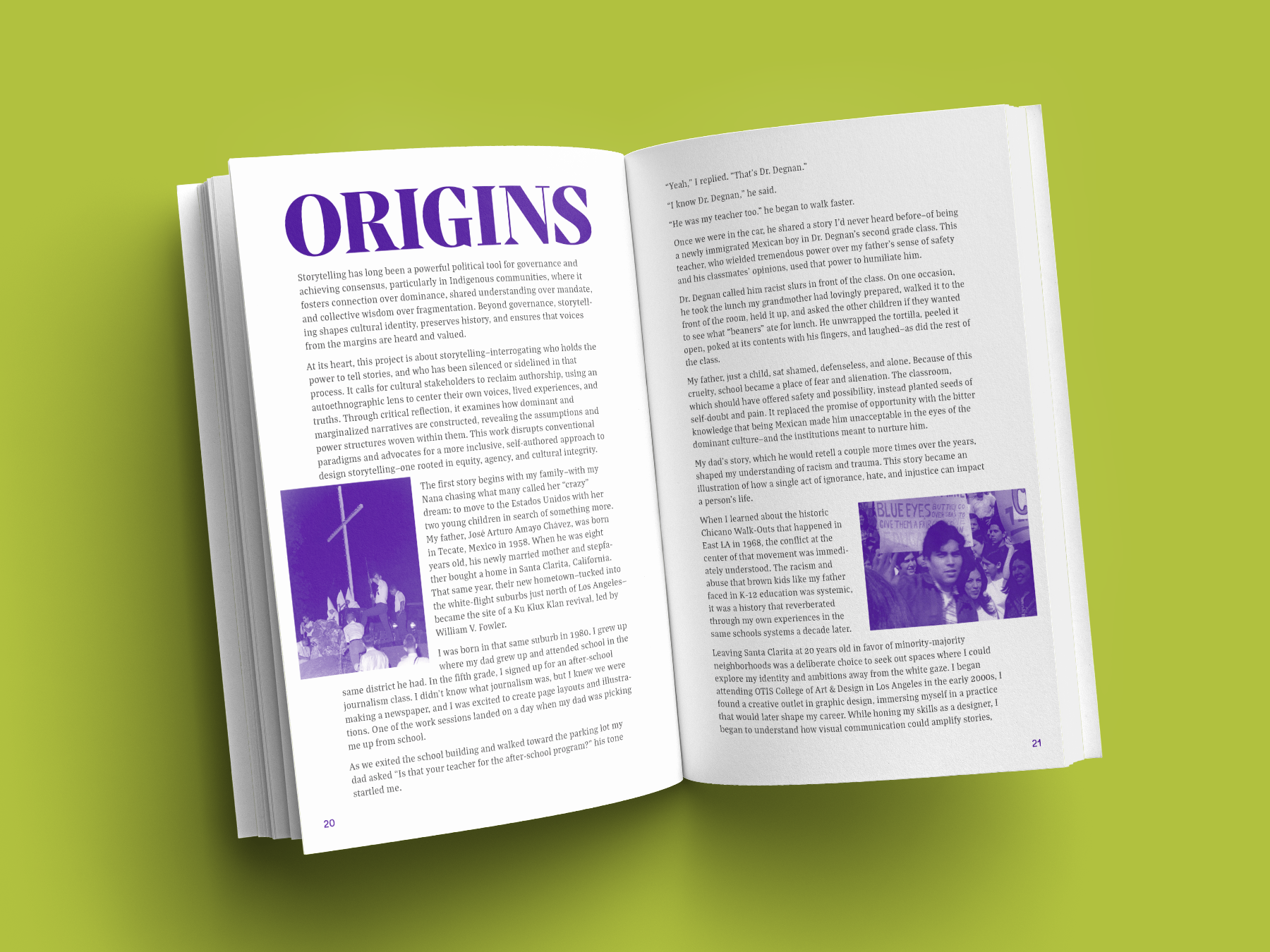IMAGO DEISIGN
Developed within the context of a Hispanic-Serving public institution, Imago DEIsign offers a practice-based alternative to inherited teaching models that prioritize formalism over humanity. Drawing from Indigenous epistemologies, feminist theory, and restorative practices, this framework advocates for "soft hierarchies" within the classroom, prioritizing consent, mutual care, and co-learning over rigid authority. Through project prompts, reflective critique structures, and community care agreements, students are empowered to locate themselves within their design practice and to make work that is personally and culturally resonant.
This project interrogates how design education can act as both a site of harm and of repair. It positions storytelling as a liberatory act that makes visible the lived realities often erased in traditional curricula. By incorporating post-rationalization critique techniques, welcoming subconscious and instinctual processes, and challenging Western assumptions of neutrality and universality, Imago DEIsign invites educators to reimagine design classrooms as ecosystems of care and cultural stewardship.
This framework offers a practical, values-based approach for institutions seeking to better serve their increasingly diverse student populations and to cultivate design practitioners who are not only technically proficient, but also ethically grounded, culturally literate, and community-oriented.
A Manifesto for Teaching Graphic Design that cultivates connection, community, and cultural literacy.
The term “Imago Dei” finds its roots in theology, where it is used to describe the reciprocal connection between God* and the living creation which becomes visible in moments of profound interpersonal resonance. It is seeing the divine essence within another being.
The structures of design education in the United States replicate the intersecting hierarchies of race, class, and culture that govern American public life, reinforcing patterns of marginalization through curricula, critique, and access. Imago DEIsign emerges as a pedagogical framework that reimagines design teaching through the lenses of cultural literacy, radical empathy, and communal storytelling. Grounded in self-located research and testimonial sharing guided by boundaried generosity, this framework challenges dominant narratives by decentering, and elevating marginalized voices, emphasizing relational learning, and valuing intuition alongside technical skill.


